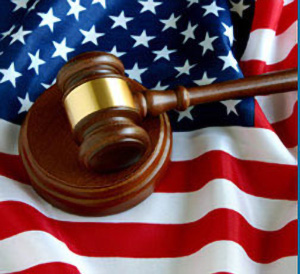August 04, 2016
By Brad Bumsted – Trib Live
HARRISBURG — One juror could be the difference between freedom and prison for Attorney General Kathleen Kane, experts say.
Jury selection for Kane’s trial is expected to begin Monday in Norristown. She continues to maintain that she is confident about being acquitted, but having one juror hold out — because he or she sees Kane as a victim of the system — would be enough for a mistrial.
“To shoot for ‘the one’ is often an objective, and it may very well be the case” at Kane’s trial, said William C. Costopoulos, a Cumberland County defense attorney who handles high-profile cases but is not involved in this matter. “A hung jury is not a complete victory, but you (as a defendant) are still not guilty,” he said.
For a guilty or not guilty verdict in a criminal case, unanimous agreement among 12 jurors is required.
Kane, 50, of Scranton is charged with perjury for allegedly lying about her purported leak of secret grand jury material to the Philadelphia Daily News. She must also stand trial for obstruction of justice and official oppression. Prosecutors claim Kane directed a cover-up of the leak, which was intended to embarrass a fellow prosecutor. As a statewide grand jury investigated her, she allegedly was kept informed about witnesses and documents by her driver and bodyguard, Patrick Reese of Dunmore, who snooped on employee emails.
A judge in December convicted Reese of indirect criminal contempt. He was sentenced in March to three to six months in jail but remains free pending the outcome of an appeal. He still is collecting a $100,000 salary in Kane’s office.
“One juror can hang or turn the remaining jurors if they are persuasive enough,” said Laurel Brandstetter, a former senior deputy attorney general who is a partner at the Leech Tishman law firm in downtown Pittsburgh.
Potentially, the one juror needed by Kane would be “female. Smart. Angry,” Brandstetter said. The woman “would need to believe in conspiracies and be willing to nullify (a verdict).”
Nullification generally means ignoring the law or the evidence.
Wesley Oliver, who teaches law at Duquesne University, offered a slightly different take.
“The defense would love a juror who is suspicious of the government and (sensitive to) the overuse of criminal law,” Oliver said. “The defense needs someone to essentially ask, ‘Is this much ado about nothing?’ Or alternatively, ‘Is this a politically motivated prosecution about very little?’ ”
Brandstetter sees jury selection “as all gut and instincts.”
Kane’s Manhattan attorney, Gerald Shargel, could not be reached for comment. Montgomery County District Attorney Kevin Steele would say only that the prosecution wants “a fair and impartial jury.”
Kane has portrayed the charges against her as the work of an “old boys’ network” aimed at hiding their pornographic emails that crossed Office of Attorney General servers. Numerous employees lost their jobs in the email scandal, including two former Supreme Court justices.
Montgomery County Common Pleas Judge Wendy Demchick-Alloy has ruled that Kane cannot use the email scandal as a defense. Nor can she argue “selective and vindictive” prosecution, the judge ruled.
Kane was “railroaded” by “angry Republican men,” her former defense attorney and public relations specialist Lanny Davis said repeatedly at the outset of the case in 2015. She said last August that those involved in the email chain were desperate to keep their communications secret and were “assisted wittingly or unwittingly” by judges and prosecutors. A report on the emails that she commissioned with tax dollars has not been released.
In some high-profile cases, defense lawyers — and occasionally the prosecution — hire jury consultants to give them a better picture of prospective jurors. It does not appear either side will use them in this case.
“Jury selection is the most important part of trial,” said Marshall Hennington, a jury consultant with offices from Beverly Hills to New York City. “The lawyers have to tailor their arguments to the people on that jury.”
One of his biggest jobs, Hennington said, is to eliminate jurors “on a seek-and-destroy mission.” His firm goes through public records, online files and other searches.
“I have a Ph.D. in understanding liars,” Hennington said. “I have my B.S. detector on 24-7 on a case.”
Brad Bumsted is the Tribune-Review’s state Capitol reporter. Reach him at 717-787-1405 or bbumsted@tribweb.com.
